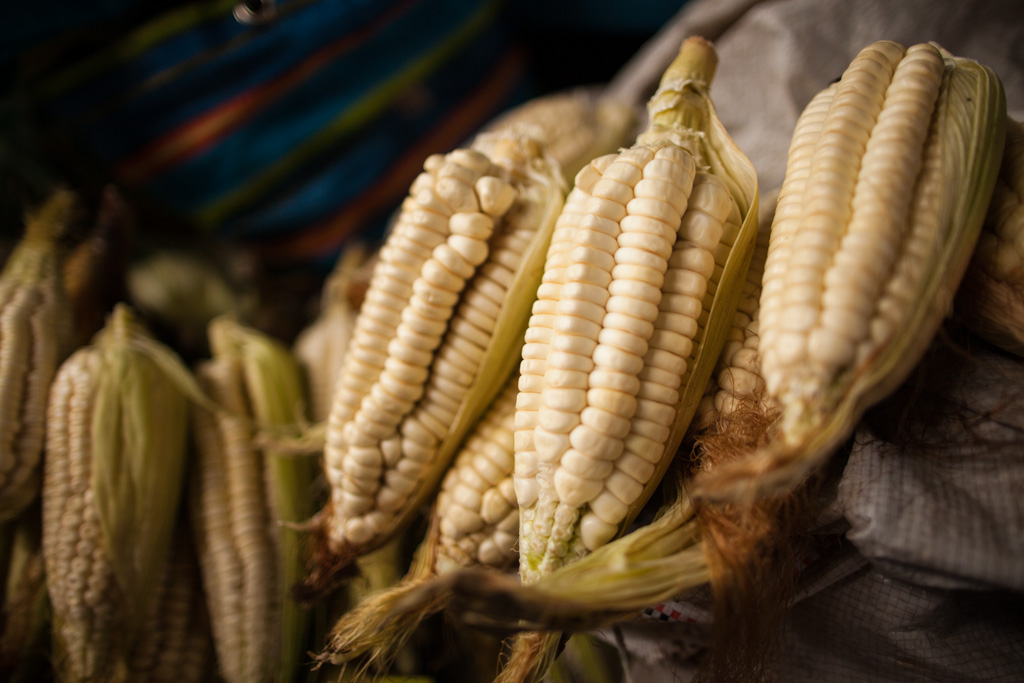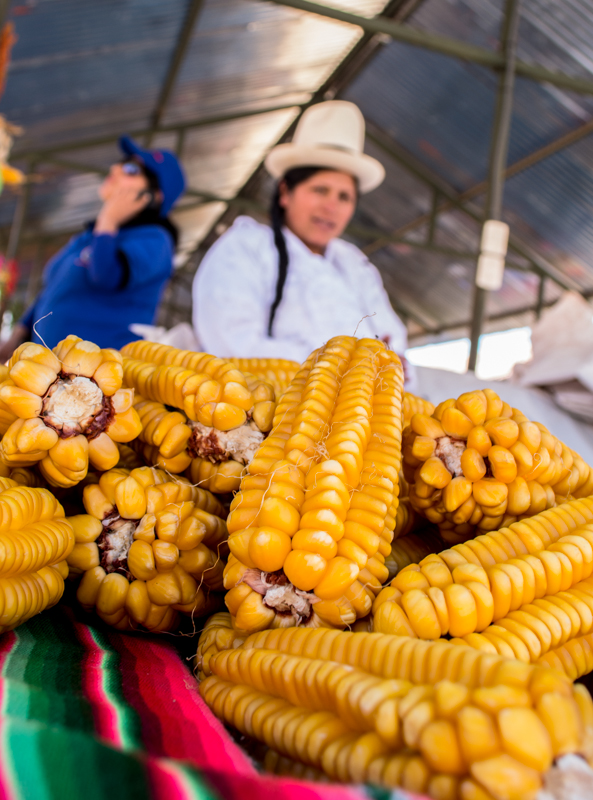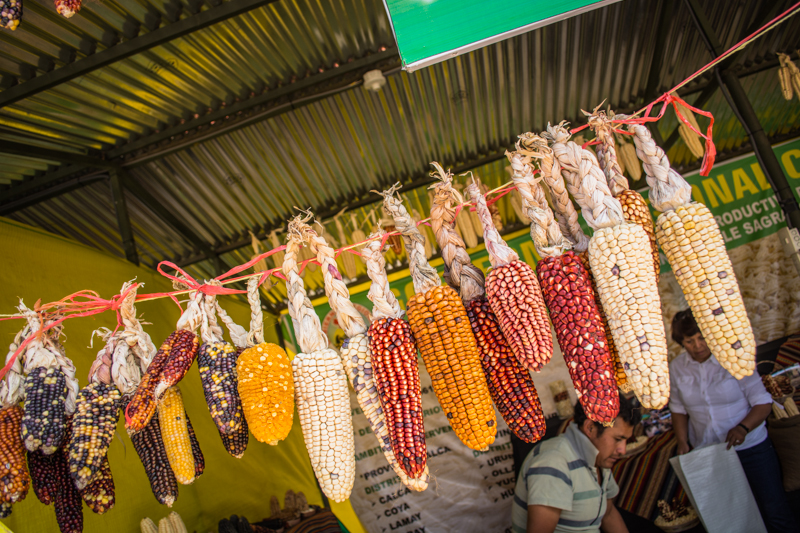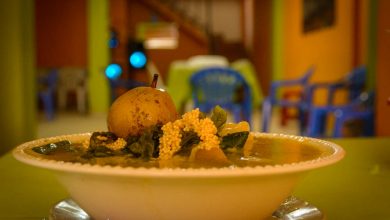Corn of the Andes has great importance from times past until today and has an incalculable value for the Andean people and their culture. The value attributed to it stems from several factors; one of them being it is the most important food.
Since Inca times, corn has been a fundamental part of the diet of Peru’s inhabitants and it is clear that to this day, this grain is still being maintained and consumed in a large number of traditional dishes such as the corn lawa, which is mostly made up of corn, corn with cheese, mote, parched corn, etc.
Sharing in the villages of the Andes of Peru is of great importance. A form of work called “ayni” is practiced. It is a form of mutual help among people, supporting each other in different activities such as agriculture, livestock and construction.
This way of working comes from Inca times and is practiced by our ayllus. Along with this practice, corn turned into a mote played a very important role like other products such as coca. It helped to strengthen social ties and built extremely strong ties between people who practiced ayni.
All the people working in ayni meet together for lunch. Tired, they start to eat mote, dried and boiled hominy. Here they share all their experiences and anecdotes. The young people open their ears and learn everything the elders talk about.

The help of each other in the Andes of Peru is very important for the progress of the people. Along with corn and other customs they still maintain the traditions inherited from the Inca time and they are the last guardians of this beautiful essence of giving and receive without expecting anything in return.







